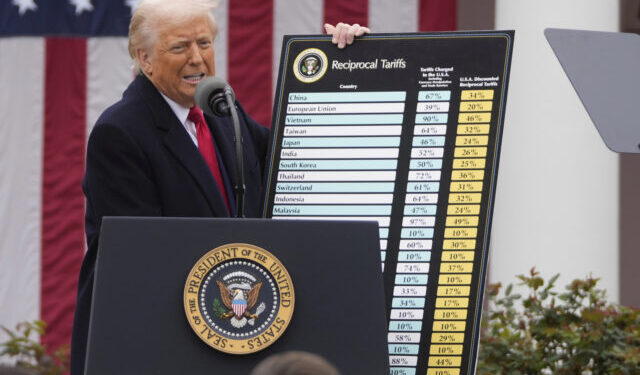Another unelected court just stepped in to block former President Donald Trump’s bold moves to put America first. This time, it’s about tariffs — and once again, a group of bureaucrats is trying to rein in a president who dared to challenge the status quo.
On Wednesday, a federal trade court in New York ruled against President Trump’s sweeping use of tariffs under emergency powers. The decision, made by a three-judge panel at the U.S. Court of International Trade, claims Trump went too far in using the 1977 International Emergency Economic Powers Act (IEEPA) to impose tariffs on imports.
“The Worldwide and Retaliatory Tariff Orders exceed any authority granted to the President by IEEPA to regulate importation by means of tariffs,” the court wrote in its decision.
While the White House hasn’t responded yet, it’s widely expected that the Trump team will appeal — and rightly so. This decision isn’t just a slap at one of Trump’s signature policies. It’s a challenge to presidential authority and America’s right to defend itself economically.
President Trump’s tariff strategy was never just about dollars and cents — it was about rebuilding American industry, protecting jobs, and challenging foreign governments that have taken advantage of weak U.S. leadership for decades.
From China to Mexico, Canada to Europe, Trump didn’t pull punches. He slapped tariffs on imports from countries that flood our markets with cheap goods, steal American innovation, and do nothing to stop the illegal drugs and migrants pouring across our border.
And when critics cried foul, Trump didn’t back down. He called out the hypocrisy and made it clear: America’s massive trade deficit isn’t just an economic issue — it’s a national security threat.
He argued that trade deficits amount to a national emergency, giving him the authority to act swiftly under IEEPA.
The court decision stems from at least seven lawsuits, one of which was filed by a group of small businesses — including V.O.S. Selections, a wine importer. The owner says the tariffs are hurting his bottom line and his company might not survive.
Joining in the legal fight were a dozen Democrat-led states, with Oregon leading the charge. Their goal? To strip the president of the power to take bold action on trade without running everything through Congress.
“This ruling reaffirms that our laws matter, and that trade decisions can’t be made on the president’s whim,” said Oregon Attorney General Dan Rayfield.
But here’s the truth — this was never about Trump breaking the law. It’s about the political establishment trying to rein in the one man who actually stood up for working-class Americans.
Critics argue that IEEPA was never meant for tariffs. They say the law can only be used in the event of an “unusual and extraordinary threat.” Their claim? That America’s decades-long trade deficit doesn’t count as an emergency.
But 49 straight years of trade deficits isn’t a threat? Tell that to the American auto worker, the steelworker, or the small business that’s had to shut its doors because China manipulates its currency and floods our markets with garbage.
Trump’s administration cited President Richard Nixon’s use of similar emergency powers in 1971 as precedent. And they’re not wrong — history shows presidents have taken bold economic steps before. But now, when Trump does it, suddenly the courts want to step in?
When Trump first imposed tariffs, the media went into meltdown mode. Financial pundits predicted economic collapse, Wall Street warned of global panic, and economists began downgrading growth forecasts.
But reality told a different story.
While global markets may have wobbled, America’s economy remained strong. The country continued to grow, jobs stayed steady, and in many industries — like manufacturing and steel — Trump’s tough trade stance gave them a fighting chance.
According to a 2019 report from the Peterson Institute for International Economics, despite media handwringing, the overall economic impact of the tariffs was modest, and some industries actually saw long-overdue investment return.
This case isn’t just about tariffs. It’s about whether a president — elected by the people — can take immediate action when America is being exploited.
The court’s ruling, if upheld, would tie the hands of future presidents, forcing them to wait on a divided Congress to act on pressing trade issues. That’s not just impractical — it’s dangerous.
While the legal battle is far from over, what’s clear is this: President Trump shook the global system because he refused to let America be taken advantage of. And that’s exactly why the establishment — in D.C. and in the courts — is still trying to stop him.




















